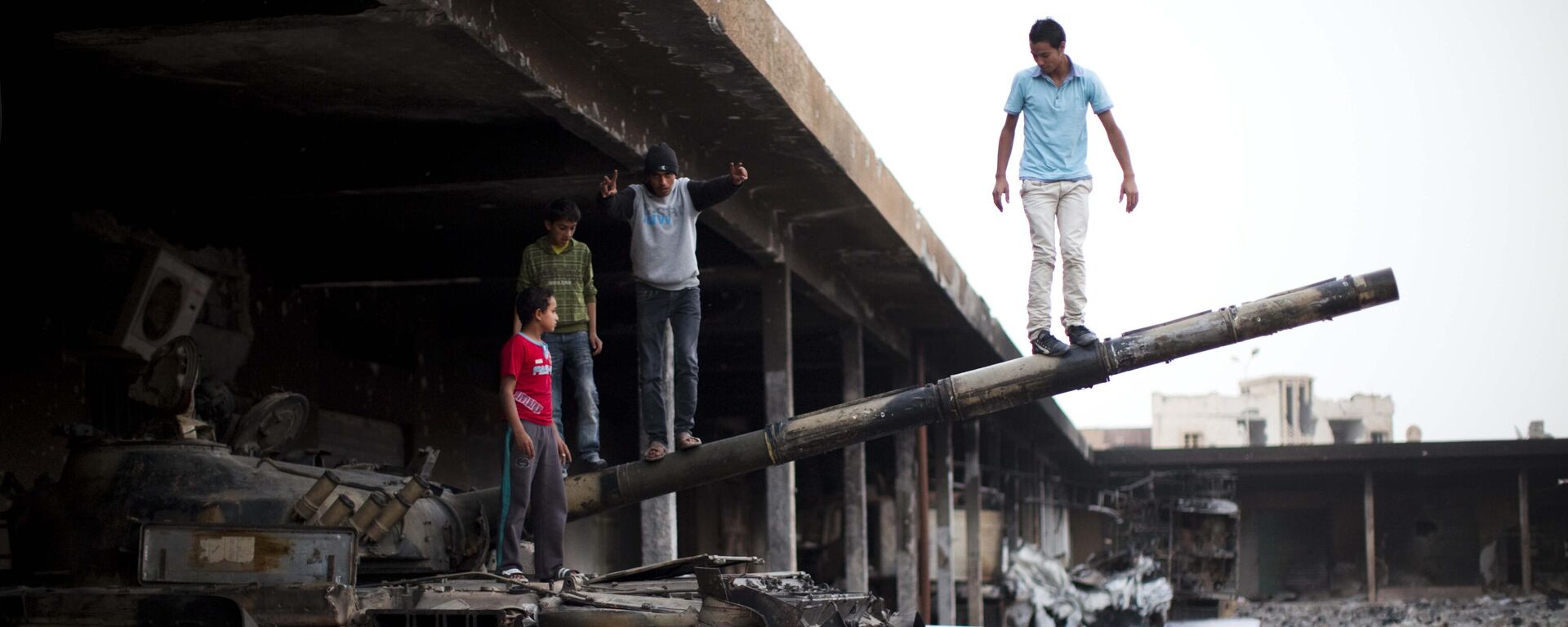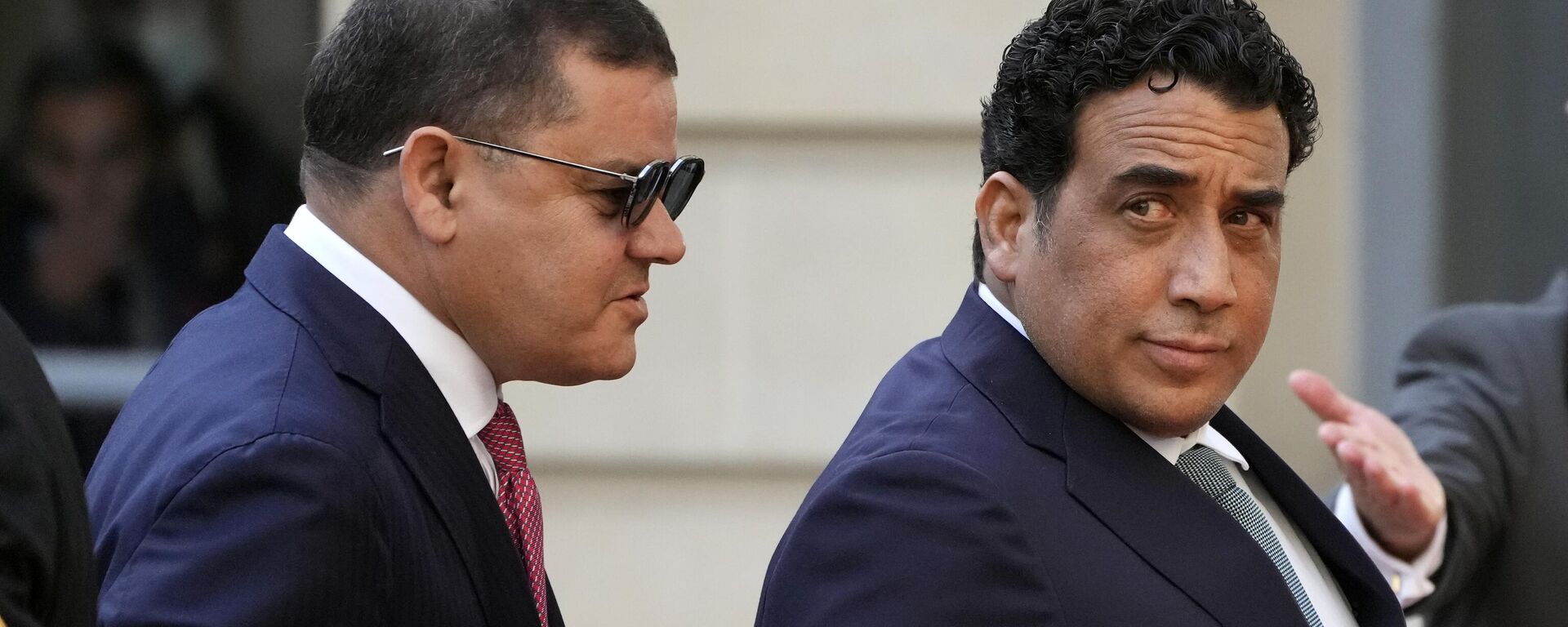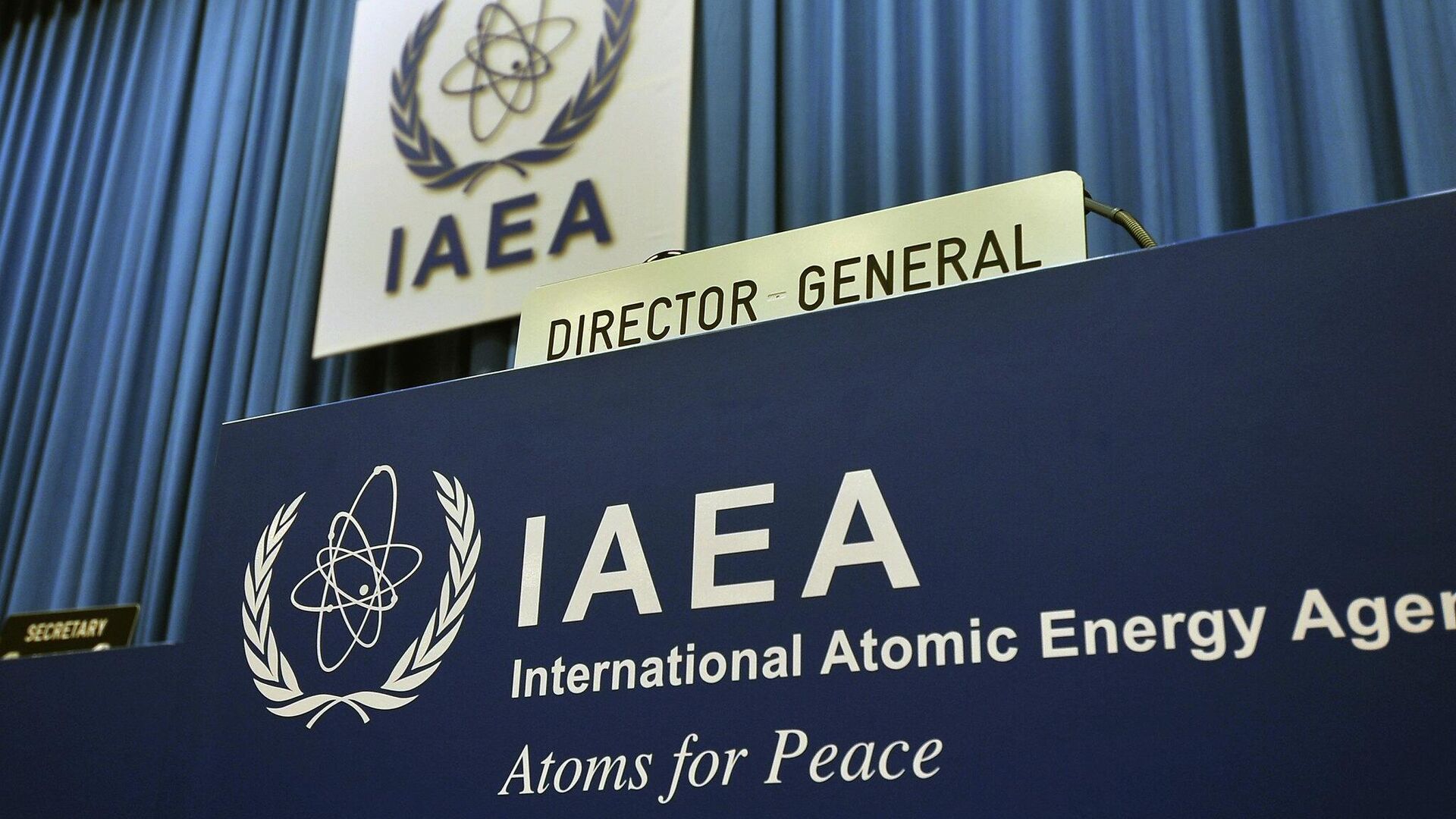https://sputnikglobe.com/20230316/iaea-loses-over-two-tons-of-libyan-uranium-despite-russias-decade-long-warning-1108459216.html
IAEA Loses Over Two Tons of Libyan Uranium Despite Russia's Decade-Long Warning
IAEA Loses Over Two Tons of Libyan Uranium Despite Russia's Decade-Long Warning
Sputnik International
The International Atomic Energy Agency has found that around 2.5 tons of natural uranium stored in an unnamed site in Libya have gone missing, the nuclear... 16.03.2023, Sputnik International
2023-03-16T11:20+0000
2023-03-16T11:20+0000
2023-03-16T11:46+0000
international atomic energy agency (iaea)
nuclear
uranium
yellowcake
libya
nato
libyan war
2011 libya military intervention
terrorists
world
https://cdn1.img.sputnikglobe.com/img/07e6/05/1f/1095897829_0:82:2048:1235_1920x0_80_0_0_c8fb5724b2b0b7fdf47e11d425f8906f.jpg
The IAEA has said that it is presently investigating the circumstances surrounding the disappearance of the 2.5-ton trove of uranium and its current location.The news follows a March 14 United Nation watchdog inspection in Libya, originally planned for last year but postponed due to the security situation in the region.The confidential statement, initially cited by Reuters, said that IAEA inspectors "found that 10 drums containing approximately 2.5 tons of natural uranium in the form of UOC (uranium ore concentrate) previously declared by (Libya)... as being stored at that location were not present at the location."The IAEA is planning to conduct "further activities" in order to determine the circumstances of the uranium's removal from the site and its present location, according to the statement.According to the US press, the so-called "yellowcake" uranium which went missing in Libya cannot immediately be used for energy production or nuclear bomb fuel; however, each ton of natural uranium can eventually be refined to 5.6 kilograms (12 pounds) of weapons-grade material, if obtained by a group with technological resources and expertise. Yellowcake represents an early stage in the process of creating fuel for power reactors or nuclear weapons. After natural uranium is mined it undergoes a special process to turn it into yellowcake. In turn, yellowcake must then be processed into a gaseous form, uranium hexafluoride, and only after that it can be enriched.Even though the IAEA did not provide further details with regard to where exactly the substantial batch of the natural uranium was removed, the US media suggested that the watchdog's phrase "previously declared site" apparently refers to Sabha, the site located some 660 kilometers southeast of Libya’s capital, Tripoli. Reportedly, thousands of barrels of "yellowcake" uranium had been stored there by the Libyan leader Muammar Gaddafi who was ousted and killed amid the NATO invasion of the sovereign state.Libya abandoned its nuclear weapons program in December 2003 and permitted international officials to inspect ten previously undisclosed sites to remove key components of the program. While the IAEA removed the last of the enriched uranium from Libya in 2009, the yellowcake remained in the North African state.According to UN estimates, as of 2013 there were some 6,400 barrels of it stored at Sabha. Chaos caused by the NATO invasion of Libya, as well as terror activities by jihadist groups in the region, triggered questions about the safety of the yellowcake trove.Russia has repeatedly expressed concerns over the security of the Libyan yellowcake. Vitaly Churkin, then Russia’s ambassador to the United Nations, told the Russian press in November 2013 that he raised the issue during Security Council consultations and requested that the body urge Libya to take "practical steps to remedy the situation." However, it appears that the UN watchdog and the Libyan authorities have failed to fix the problem with yellowcake vanishing in thin air from the Libyan site a decade later.
https://sputnikglobe.com/20230215/descending-into-the-abyss-12-years-since-civil-war-began-in-libya-1107431531.html
https://sputnikglobe.com/20230110/libya-presidential-council-chairman-lna-commander-hold-talks-in-cairo-advisor-says-1106187359.html
libya
Sputnik International
feedback@sputniknews.com
+74956456601
MIA „Rossiya Segodnya“
2023
News
en_EN
Sputnik International
feedback@sputniknews.com
+74956456601
MIA „Rossiya Segodnya“
Sputnik International
feedback@sputniknews.com
+74956456601
MIA „Rossiya Segodnya“
iaea report, 2.5 tons of uranium is missing in libya, nato invasion of libya, yellowcake uranium, security and prolifiration concerns, iaea investigation into removal of uranium in libya
iaea report, 2.5 tons of uranium is missing in libya, nato invasion of libya, yellowcake uranium, security and prolifiration concerns, iaea investigation into removal of uranium in libya
IAEA Loses Over Two Tons of Libyan Uranium Despite Russia's Decade-Long Warning
11:20 GMT 16.03.2023 (Updated: 11:46 GMT 16.03.2023) The International Atomic Energy Agency has found that around 2.5 tons of natural uranium stored in an unnamed site in Libya have gone missing, the nuclear watchdog said Wednesday, citing proliferation concerns.
The IAEA has said that it is presently investigating the circumstances surrounding the disappearance of the 2.5-ton trove of uranium and its current location.
The news follows a March 14 United Nation watchdog inspection in Libya, originally planned for last year but postponed due to the security situation in the region.
The confidential statement, initially cited by Reuters, said that IAEA inspectors "found that 10 drums containing approximately 2.5 tons of natural uranium in the form of UOC (uranium ore concentrate) previously declared by (Libya)... as being stored at that location were not present at the location."
The IAEA is planning to conduct "further activities" in order to determine the circumstances of the uranium's removal from the site and its present location, according to the statement.
"The loss of knowledge about the present location of nuclear material may present a radiological risk, as well as nuclear security concerns," the statement warned.

15 February 2023, 07:30 GMT
According to the US press, the so-called "yellowcake" uranium which went missing in Libya cannot immediately be used for energy production or nuclear bomb fuel; however, each ton of natural uranium can eventually be refined to 5.6 kilograms (12 pounds) of weapons-grade material, if obtained by a group with technological resources and expertise.
Yellowcake represents an early stage in the process of creating fuel for power reactors or nuclear weapons. After natural uranium is mined it undergoes a special process to turn it into yellowcake. In turn, yellowcake must then be processed into a gaseous form, uranium hexafluoride, and only after that it can be enriched.
Even though the IAEA did not provide further details with regard to where exactly the substantial batch of the natural uranium was removed, the US media suggested that the watchdog's phrase
"previously declared site" apparently refers to Sabha, the site located some 660 kilometers southeast of Libya’s capital, Tripoli. Reportedly, thousands of barrels of "yellowcake" uranium had been stored there by the Libyan leader Muammar Gaddafi who was ousted and killed amid
the NATO invasion of the sovereign state.

10 January 2023, 06:29 GMT
Libya abandoned its nuclear weapons program in December 2003 and permitted international officials to inspect ten previously undisclosed sites to remove key components of the program. While the IAEA removed the last of the enriched uranium from Libya in 2009, the yellowcake remained in the North African state.
According to UN estimates, as of 2013 there were some 6,400 barrels of it stored at Sabha. Chaos caused by
the NATO invasion of Libya, as well as terror activities by jihadist groups in the region, triggered questions about the safety of the yellowcake trove.
Russia has repeatedly expressed concerns over the security of the Libyan yellowcake. Vitaly Churkin, then Russia’s ambassador to the United Nations, told the Russian press in November 2013 that he raised the issue during Security Council consultations and requested that the body urge Libya to take "practical steps to remedy the situation." However, it appears that the UN watchdog and the Libyan authorities have failed to fix the problem with yellowcake vanishing in thin air from the Libyan site a decade later.




